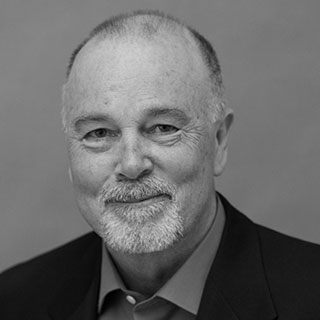
A Community Living Toward Wholeness

“Yes, I love Jesus Christ, but I don’t go to church.”
Over the years, I’ve heard similar statements from lots of people. Asked about church, they may say, “The teaching is good, the music is great – but it’s like going to a show or a concert, I don’t experience real community.” Or here’s another one: “They’re friendly, but I can’t make any friends there.”
SPEAKING OF CHURCH
What are they looking for – even yearning for – in a church?
When I use the term ‘church’ I’m not talking about a building or an institution; I’m talking about a community of Christ-followers, a Jesus community.
Here’s what James says to a Jesus community (James 5:13-16a ESV):
13 Is anyone among you suffering? Let him pray. Is anyone cheerful? Let him sing praise. 14 Is anyone among you sick? Let him call for the elders of the church, and let them pray over him, anointing him with oil in the name of the Lord. 15 And the prayer of faith will save the one who is sick, and the Lord will raise him up. And if he has committed sins, he will be forgiven. 16 Therefore, confess your sins to one another and pray for one another, that you may be healed. The prayer of a righteous person has great power as it is working.
Here are some insights to be a Jesus community living toward wholeness.
FOUR KEYS TO WHOLESOME COMMUNITY
First, life is being lived “among” these Christ-followers – they are in community:
- “Is anyone among you suffering?”
- “Is anyone [among you] cheerful?”
- “Is anyone among you sick?”
Their "community" is not limited to a one-hour religious meeting on Sundays. They are together in their experiences of suffering, joy, and sickness. James prescribes their responses to each of these, respectively, he or she should pray; sing praises; call for the elders.
Second, flowing from the observations in the first point, there are the expressions of the horizontal relationships (person-to-person), and the vertical relationships (each of them to the God who revealed himself as Jesus). These vertical and horizontal relationships are vital for a Jesus community living toward wholeness.
Recently, I was in conversation with a ‘hurting’ follower of Jesus. That person referred to the friendliness of the people at church events, and the absence of community the rest of the week; they were friendly, but not open to becoming friends. That’s a comment on the reality of the horizontal relationships within that church – and, I suppose, the vertical as well.
Third, James’ community has godly and involved leaders. In our context, these leaders respond to the call of a sick person. It is these elders who “pray over” the sick person, who “anoint with oil,” whose “prayer of faith will save the one who is sick,” all in submissive cooperation with the will and power of the Lord (5:14-15).
These leaders are not mere functionaries who attend board meetings and handle administrative matters. A Jesus community living toward wholeness has godly and involved leaders.
Fourth, all members of a Jesus community are called to confession and intercession within their community: “Therefore, confess your sins to one another and pray for one another, that you may be healed” (5:16a).
Does “therefore” point to the lives of the godly leaders being models and motivation for confession, prayer, and righteousness?
Do the members of your Jesus community confess their sins to each other, and pray (really pray) for each other? What does a Jesus community need to be living toward that kind of wholeness?

THREE THINGS YOU CAN BRING TO A JESUS COMMUNITY
Some of the qualities needed include:
- Trust – each of us needs to know that in exposing ourselves to others in confession we are, and will continue to be, loved and accepted by the others.
- Honesty – each of us needs to be transparently honest in our lives before the others. William James put it this way: “For him who confesses, shams are over and realities have begun; he has exteriorized his rottenness. If he has not actually got rid of it, he at least no longer smears it over with a hypocritical show of virtue – he lives at least upon a basis of [truthfulness].”
- Care – each of us needs to not only experience but also express love and acceptance of the other. The word “care” sounds weak, but it doesn’t have to be. It needs to be the intentional and genuine expression of the love of God toward others in the power of the Holy Spirit. For instance, it’s not simply saying “I’ll pray for you” – it’s actually praying with and for you!
I suspect that these qualities of communal trust, transparent honesty, and unconditional love are not cultivated in a brief, structured weekly church event – something more is required to form a genuine community. So how can we live toward this kind of communal wholeness?
DISCERNING, RISKING, AND PRAYING
One other necessity is praying – Elijah-like praying (5:16b-19) – which we will explore in the next post.
Here are two other insights that may seem contradictory: discerning caution and courageous risk.
We do not naturally, or even wisely, “put everything out there” to people we do not trust – and we don’t trust people until we get to know them. So a degree of caution exists while we get to know others. As we listen and speak with others, watch and act in company with others, we are assessing and discerning how they respond, what they think, how they judge – in short, who and what they are. Does the person or group respect confidences, display a measure of objectivity, listen intently, and offer responsible, timely advice and support because he/she/they love you and accept you – just as you are? Your conclusion will involve discerning caution as you move toward greater honesty and transparency with others.
Second, we reach a point where we go deeper in our relationship with others, or we withdraw. If discerning caution indicates we want to go deeper, we need to take a courageous risk. As we begin to enter this realm of uncertainty, we may use terms such as “Can I share something with you in confidence?” We then “put something out there” anticipating (hoping?) that we will be heard without being condemned.
A MODEST PROPOSAL
What I’m proposing is that people who desire their Jesus community to be living toward wholeness need to trust each other, be honest with each other, and care for each other. This will take time and involvement on your part. As you exercise discerning caution and take courageous risks, relationships will begin to grow. It can start with you and one other person, then two, then three, … eventually a whole Jesus community.
We began with the question “What are you looking for in a church?” Is James giving you a taste of what it looks like to be part of a Jesus community living toward wholeness?
Let’s hear your practical suggestions, and (perhaps) experiences, of what it means to be a Jesus community living toward wholeness.
This article has been reposted with permission from Living Theology. It originally appeared as an article within a series of blog posts called “James: Living Towards Wholeness.” You can access the entire blog series HERE. You can also read the next blog in this series “Praying toward wholeness” HERE.
 John B. MacDonald's focus is equipping and encouraging others to become more like Jesus Christ and to live all of life with God-honoring competence and joy. Since the 1970s, teaching the Bible and practical theology has taken John to four continents. In 2003, John chose between a busy practice in law and a full schedule of Bible teaching. His decision led to being pastor-teacher of a Metro-Vancouver church community, and now he continues serving, teaching, and writing with Outreach Canada. John B. MacDonald earned B.Com. and J.D. degrees (UBC), M.A. in Biblical Studies (Regent), and D.Min. (TWU). His doctoral dissertation combined his theological and legal backgrounds at the intersection of leadership, conflict, and spiritual formation. You can contact John B. MacDonald through his website Living Theology.
John B. MacDonald's focus is equipping and encouraging others to become more like Jesus Christ and to live all of life with God-honoring competence and joy. Since the 1970s, teaching the Bible and practical theology has taken John to four continents. In 2003, John chose between a busy practice in law and a full schedule of Bible teaching. His decision led to being pastor-teacher of a Metro-Vancouver church community, and now he continues serving, teaching, and writing with Outreach Canada. John B. MacDonald earned B.Com. and J.D. degrees (UBC), M.A. in Biblical Studies (Regent), and D.Min. (TWU). His doctoral dissertation combined his theological and legal backgrounds at the intersection of leadership, conflict, and spiritual formation. You can contact John B. MacDonald through his website Living Theology.